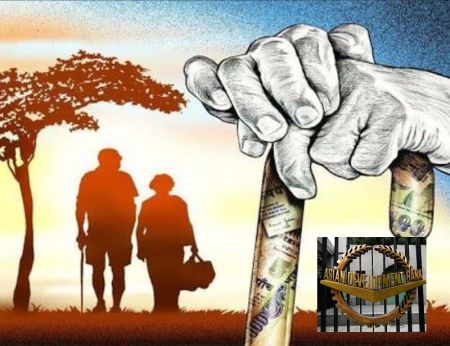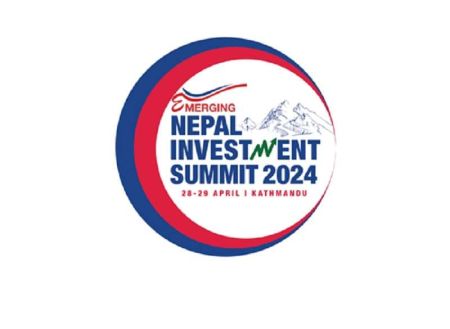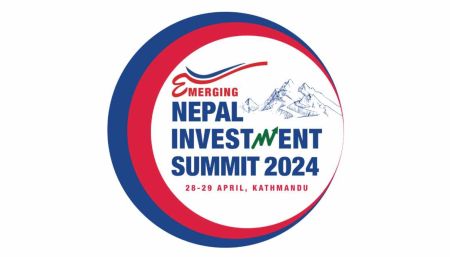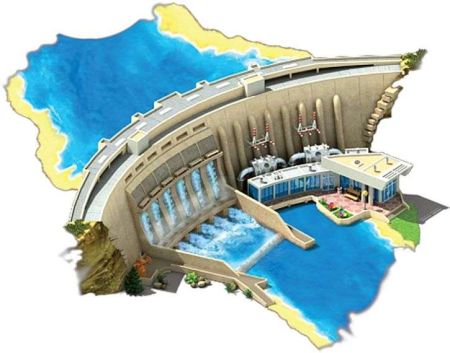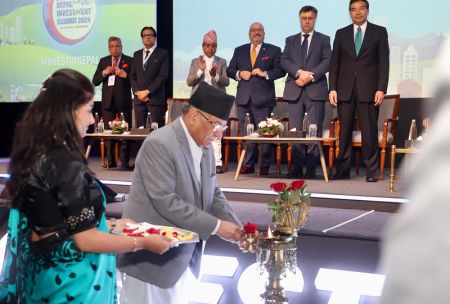 William Ruger is an Associate Professor in the Department of Political Science at Texas State University and an adjunct assistant professor at the LBJ School of Public Affairs at the University of Texas-Austin. He earned his PhD in Politics from Brandeis University. Professor Ruger has authored a biography, Milton Friedman, and is also co-author of The State of Texas: Government, Politics, and Policy and Freedom in the 50 States and An Index of Personal and Economic Freedom. His scholarly articles have been appeared in International Studies Quarterly, Armed Forces and Society, and State Politics and Policy Quarterly. During his recent visit in Nepal, he spoke to Editor-in-Chief Madan Lamsal and Suraksha Adhikari of New Business Age. Excerpts:
William Ruger is an Associate Professor in the Department of Political Science at Texas State University and an adjunct assistant professor at the LBJ School of Public Affairs at the University of Texas-Austin. He earned his PhD in Politics from Brandeis University. Professor Ruger has authored a biography, Milton Friedman, and is also co-author of The State of Texas: Government, Politics, and Policy and Freedom in the 50 States and An Index of Personal and Economic Freedom. His scholarly articles have been appeared in International Studies Quarterly, Armed Forces and Society, and State Politics and Policy Quarterly. During his recent visit in Nepal, he spoke to Editor-in-Chief Madan Lamsal and Suraksha Adhikari of New Business Age. Excerpts: What brought you to Nepal this time?
Well, I am here as a guest and also to address a workshop at the King’s College. I love interacting with people and the same thing I am doing here in Kathmandu to exchange thought and views on current scenario in this country. So, it’s been very enjoyable.
You argue that developing economies need well-functioning institutions that keep peace (both domestically and internationally) and administer justice. Can you elaborate?
One of the most important things that the social scientists have identified is being consistent with the prosperous economy where a state protests property rights. When people want to invest for better economy, they need to be protected in terms of their property rights. Their profits won’t be confiscated and the investment they make won’t get affected with high tax issues, which will led them to rough weather — crushing their efforts by the regulations. It’s really important to have a thorough research and to get the institutions right. For example: There is a book called, “Why Nations Fail?” where the difference between North and South Korea was beautifully portrayed as different sets of institutions. South Korea and United States have more inclusive institutions including property right protection while other places do not. One can see the difference in these two places.
You have emphasized that the governments need to focus on protecting private property rights. What are major implications of private property rights on economy?
I don’t think we should defend property rights simply because they lead to economic prosperity. I think it should be protected because it’s the right thing a state should do. People have the right to own their property, to include their integrity, their thoughts and the products of their labour in terms of making or buying. This is the right thing to do with consistence to the prosperous society. So I will not say that the state shouldn’t do it only because of its relationship with prosperity. A government is the one that protects people’s individual rights to include property right.
Considering the situation, when we are not being able to enjoy the basic fundamental rights, how can we think of including the private property rights in the list?
I am not saying it’s easy for any society including my own to ensure that the government should respect its rights. There are many examples where I think that my own government failed in protecting individual rights. I believe it’s same in Nepal too. A right state provides a situation to see whether the government’s function in ideal or not. If the government sticks to doing the basic things of protecting property rights, individual rights, allowing individual to execute their projects, having interest in bettering themselves and their family then you can see prosperity across. These are the basic things that the government should do. Unfortunately there are so many governments around the world that try to do so many things for good reasons but sometimes even for self-interested reasons. That’s why a democratic society is important so that some pressure can be put on the government by the people. That means the people have to hold the government and governing class feet to the fire. If they engage in corruption this needs to be rooted out.
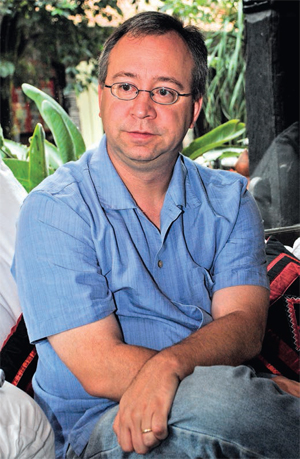 Do you think the government needs to protect the powerless from the powerful who aim to rent-seek contrary to the public good or whose persons and property are threatened or violated by other citizens?
Do you think the government needs to protect the powerless from the powerful who aim to rent-seek contrary to the public good or whose persons and property are threatened or violated by other citizens? Yes, indeed. You know a lot of people talk about how there is need to have economic right for the less well-off. Part of the problem for the weaker section of the society is that government is strictly rest-seeking against the renters, putting barriers and regulations on the business activities. It makes it harder to people to actually move up in the society. In creating a situation in which economic growth is difficult for the entire society and that doesn’t help anyone but especially hurts people towards the bottom in many ways in terms of quality and poverty. So, what we need is a real pro-growth business policy of the government — consistent with the rise so that you can see society as a whole become more progressive.
What are the major constraints of developing countries when it comes to growth?
The economic growth is a complicated picture. You must have a right institution in terms of the government, you also have to have the culture that is consistent with entrepreneur activities and a peaceful society that is relatively tolerant having strong work ethic which teaches a kind of value consistent with human flourishing. So it is very important for families and institutions in society to help develop those values.
How can we develop the entrepreneurial culture among the people’s lives in society like us?
Entrepreneurship is the thing that should be awarded not hindered. Its’ really easy to squelch an entrepreneurial skill if you frustrate it constantly especially when you are trying to raise yourself to build a business and so forth. And I think in many ways the informal economy in Nepal shows that there is still a lot of entrepreneurial spirit. It’s not just out in the formal economy perhaps it should be a really important for the government to get out of the way of the people engaging in those types of business but to make them easier and to have a kind of feeling that they won’t be punished.
It is also good for the government if they could secure the property rights of individual in business. There is a role for government to administer justice and it should engage police to protect the property rights, the people and to protect the state from other countries. And it needs tax revenue to do so.
For making the people aware about the entrepreneurship and its importance — education will play a pivotal role. These things should be taught to our children in schools and institutions to make them aware about what is necessary to achieve prosperity.
You often talk about freedom to price exploration. What’s your main proposition to this regard?
The price mechanism is important for transmitting local information efficiently in the complicated large society. Without the price mechanism it’s hard for economy to be efficient. So when government steps into that, it creates a lot of problems. In fact, without the price mechanism, how would we know how to use our resources including our work force. So when government gets in the way of that it creates problems.
How important is the ideology of political forces in development?
Unfortunately lots of parties have ideas that that the society is flourishing. And that’s the king of rent-seeking behavior we see but also that is a kind of desire for power that individuals in the parties have. In some ways you have to find ways in which ambition can be changed on the right direction. The people who are ambitious should be focused on doing positive things. You rather want to be Bill Gates and earn millions of dollars rather than being a simple person or any political entrepreneur who often spend time is creating a resources and goods for himself rather than for others. And a person like Bill Gates is the one who creates a lot of value for everyone. We should honour these people not envy them. Certainly we should not do the things that prevent the person like Bill Gates from doing what they do.
It is difficult to change the situation in the country like Nepal but part of this can be initiated from education, free press where people in media can talk about some of the stories of entrepreneurship, talk about where government has hindered this activities. But it is hard. Once you get into a bad cycle it can be difficult. Again there is a very good research in social science to show somebody’s problem and how to get out of it.
What’s your stand about communist ideology for the development of the country?
Communism is the failed idea. It should be something that any state or any group repatriates. It is amazing that after the fall of Soviet Union that anybody would generate those views particularly because they haven’t been consistent with our flourishing especially economically. Justice is quite difficult to receive in these places that adopt a communist ideology. So I am not sure why anybody want communism not to mention the fact that it just doesn’t work and it is something that even the people of the progressive forces in my country don’t want the system where the means of production are not held in private hands. So it is just amazing that why anybody would want that. But china has broken with a lot of tendencies of economy. They have tried to encourage more market forces. They are not all the way — they have to be yet — but part of the reason that they have a large economy take off was when they started liberalizing their economy and especially to open themselves to international trade. That’s part of the recipe of success.
Professor Ruger you have authored a biography, Milton Friedman. Why is Milton Friedman an important figure to write about?
Friedman is one of the best economists of the 21st century. He is the public intellectual. He was the big figure in the USA and the world promoting markets, reforms in other areas that increased freedom. Lots of people don’t realise that he was an important figure in moving USA away from conscription to an all-volunteer military force. He believed in government funding of education but didn’t believed in government administration of school so that was really important thing for him. He is important not only he was a great economist and a Nobel Prize Winner in economics for his work on monetary policy largely but also someone who passed a fairly consistent freedom agenda in all kinds of area not just in economic ground.
What is your observation on Nepali business schools based on your short surveillance?
Basically I am a political scientist but one of the best things I found out that there are really bright students who are interested about the ideas we are talking about. It’s a long way to come from Texas to Nepal and it is very nice to see the enthusiasm of the students. I wish more people come to Nepal and learn something from the people here because I have learned a lot from this place.













